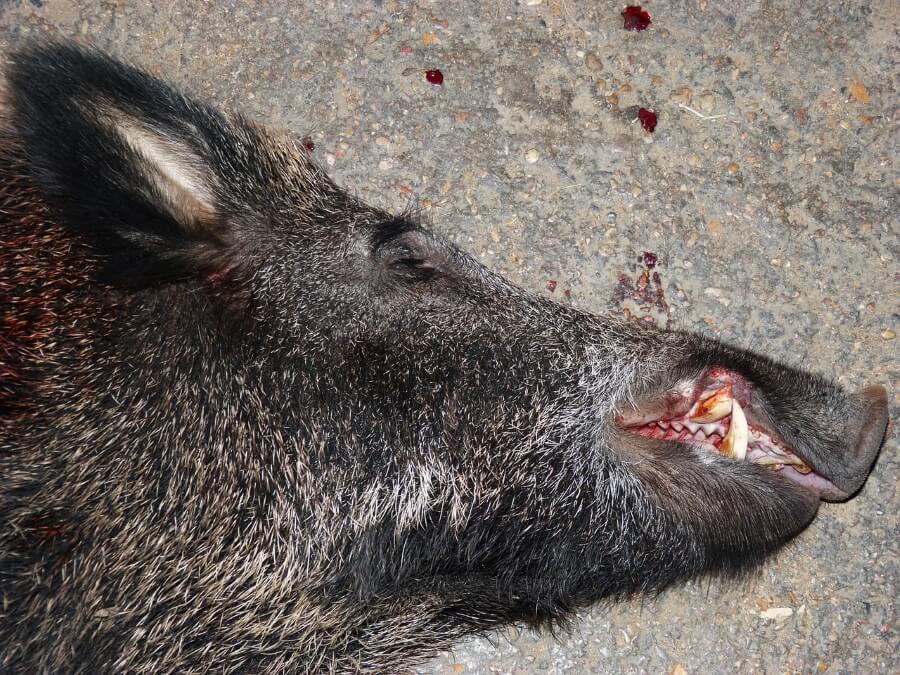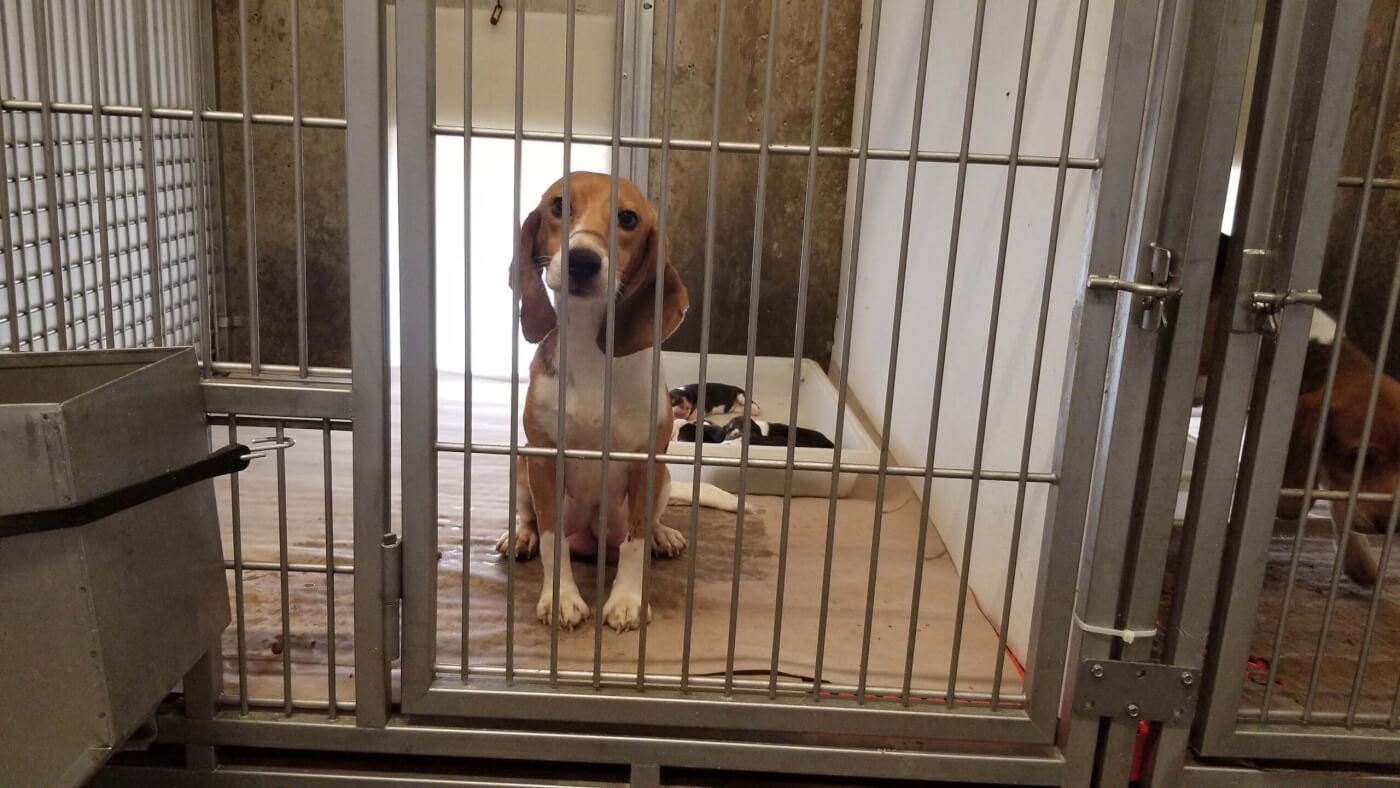
What Is ‘Pig Dogging’?
Many Australians are unaware of the disgraceful way in which wild pigs are being killed throughout New South Wales and Queensland.
“Pig dogging” is a shamefully cruel and barbaric practice in which dogs are forced to hunt wild pigs.
Whilst the hunters boast grotesquely of the adrenaline rush they experience, their treatment of the victims of this so-called “sport” – pigs and dogs – is deplorable.
Barbaric Hunting
Pig dogging involves using dogs to “bail” and hold (or “lug”) feral pigs. The dogs are forced to chase and tire out the pigs and then hold them by the ears until a human arrives to kill them. Pigs who are chased, trapped, and killed in this way experience intense fear and distress.
Usually, hunters kill pigs by “sticking” them – stabbing them in the stomach or chest to puncture the heart – before leaving them to bleed out. This is a prolonged and painful death.
Because these hunts cover large areas and it’s difficult for hunters to maintain contact with their dogs, pigs are often mauled for long periods and even killed before the humans arrive on the scene. In many cases, hunters actually encourage their dogs to maul the pigs.
The Pigs
Feral pigs arrived in Australia with the First Fleet and today inhabit around 40 per cent of the country – predominantly New South Wales and Queensland. Despite being labelled a “pest”, they experience pain and suffering just as any other animal does.
Humans should take responsibility for protecting species that we introduced into Australia – and humanely control their populations if needed, such as via immunocontraception – but instead, these pigs have been victimised in this barbaric form of hunting.
The Dogs
“Pig dogs” are usually large mixed-breed domestic dogs who have been “blooded” to make them especially aggressive. They may be beaten, starved, and psychologically abused in order to “train” them not to retreat from a pig 10 times their size.
After enduring this trauma, they’re then exposed to extreme danger during the hunt. Even though they may be “armoured” throughout – wearing protective throat collars, breastplates, and vests – they’re often injured, mutilated, and killed.
Impact on Native Wildlife and the Community
When dogs are taken out to hunt, they pose a significant threat to wildlife. Once “blooded”, they’ve been known to attack and kill wild animals when not correctly supervised. They also pose a threat to humans, since many are responsible for attacks in semi-rural areas. Because of the gruesome nature of their training, their attacks are often more serious than those perpetrated by companion dogs.
In rural areas – particularly western New South Wales – lost and stray “pig dogs” are a major issue. If these highly aggressive animals breed with dingoes, their offspring may be large, super-aggressive canine predators.
Furthermore, children are often present on pig-dogging hunts, and the lasting effects on them of witnessing this violence first-hand are extremely worrying.
Legal Implications
Legislation relating to pig dogging differs from state to state, but it’s virtually impossible to take part in this blood sport without seriously compromising the intentions and regulations of the Prevention of Cruelty to Animals Act 1979 and the Companion Animals Act 1998.
How to Help Pigs and Dogs
Please, don’t ever participate in pig dogging – and be sure to tell others why you choose not to.
Write to the New South Wales and Queensland state governments and ask that they take action on this important issue. If you witness cruelty to animals in person or online, please report it immediately to the RSPCA.
Animals Are Suffering in Laboratories – Help Save Them Now


